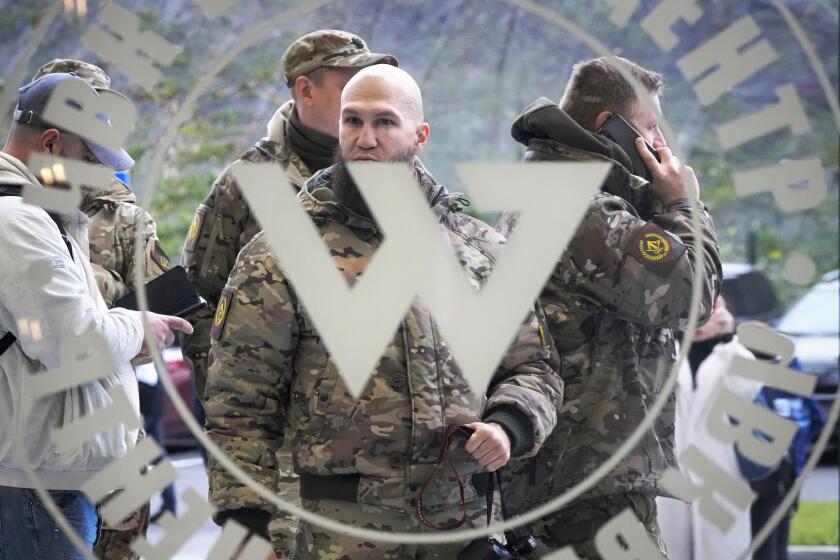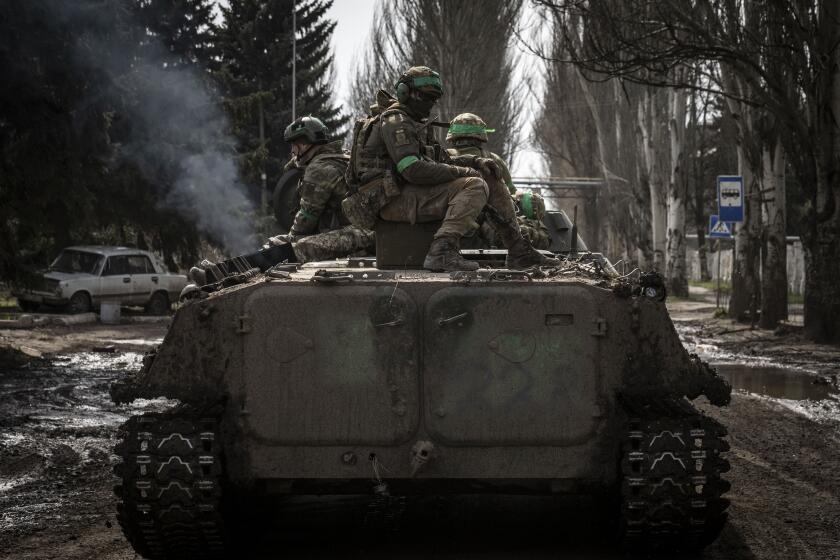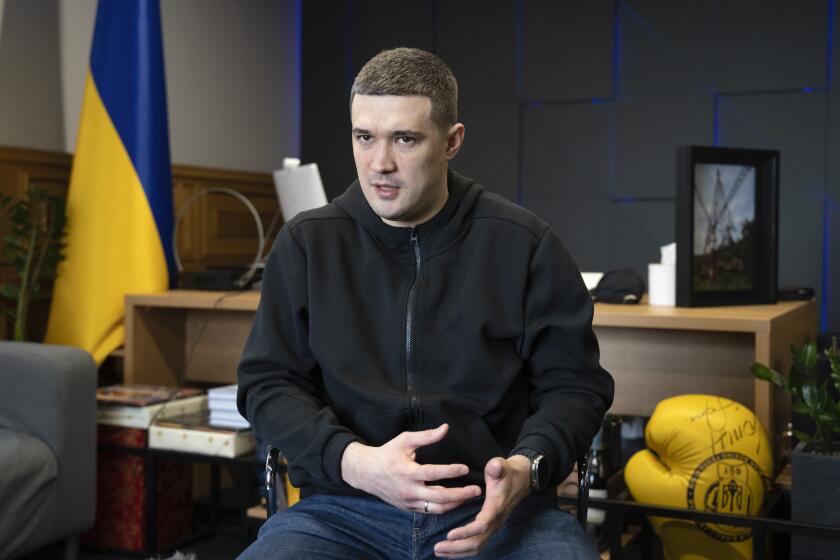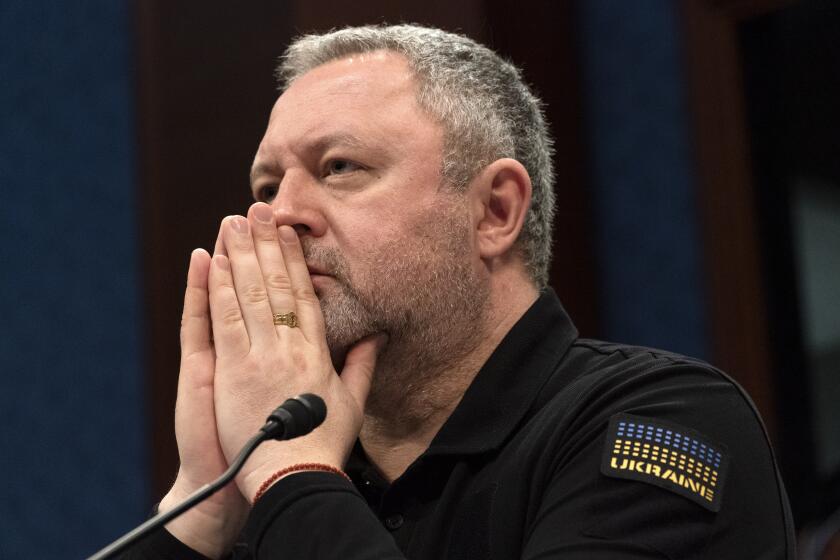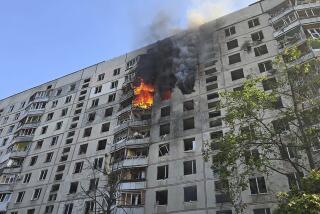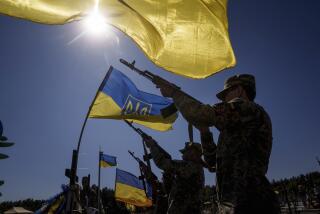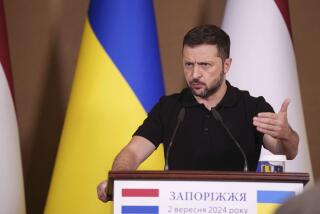Russian missile hits Ukrainian museum, killing 2 and wounding 10
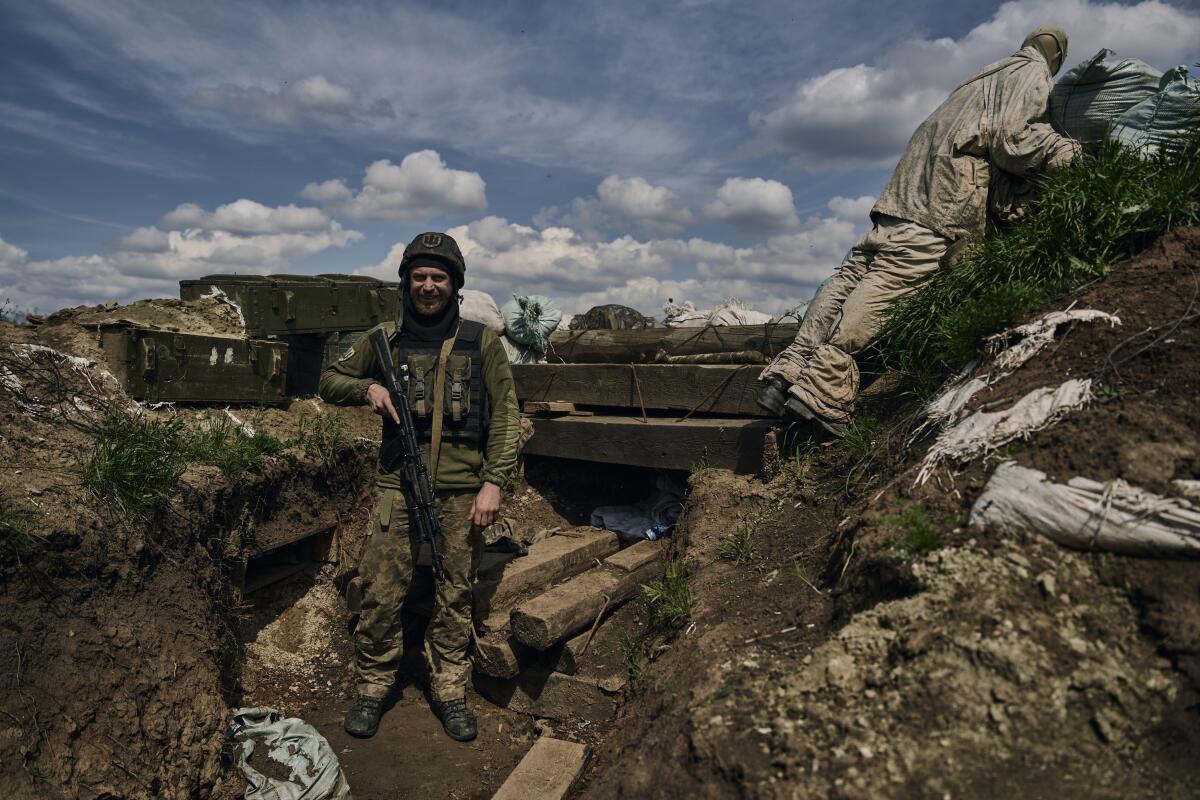
KYIV, Ukraine — A Russian missile struck a museum building in a Ukrainian city Tuesday, killing at least two people and wounding 10 — part of a relentless barrage that comes as Ukraine is readying its forces for an expected spring counteroffensive.
The Russian military used S-300 air-defense missiles to attack Kupiansk in the Kharkiv region, hitting the museum of local history in the center of the city, Ukrainian officials said. The Russian military has repeatedly used S-300s, which Ukraine’s air defenses can’t intercept, to attack ground targets.
Ukrainian President Volodymyr Zelensky posted a video from the site showing the ruined building and emergency responders examining the damage.
“The terrorist country is doing everything to destroy us completely,” Zelensky said. “Our history, our culture, our people. Killing Ukrainians with absolutely barbaric methods.”
Zelensky said a museum worker was killed; Kharkiv regional Gov. Oleh Sinegubov later reported that the body of another victim was pulled from the rubble. Sinegubov said three people were hospitalized, and seven others had minor injuries.
Kupiansk was captured by Russian forces in earlier stages of the invasion. The city was reclaimed by Ukrainian forces in a surprise counteroffensive in September that saw Russians driven out of broad swaths of the Kharkiv region.
Russian private military contractor Wagner is busy boosting its brand as its fighters try to subdue Ukraine, trading secrecy for war propaganda movies.
Also Tuesday, a woman died in Russian shelling of the town of Dvorichna, near Kupiansk, and two civilians were killed in the eastern Donetsk region, according to Zelensky’s office.
The governor of the Dnipropetrovsk region, Serhiy Lisak, said two people were wounded in Russian heavy-artillery fire that hit the cities of Marhanets and Nikopol on Tuesday evening. Both cities are on the western bank of the Dnipro River just across from the Russia-held Zaporizhzhia nuclear power plant, which both Russia and Ukraine say has been endangered by shelling in the region.
As anticipation builds for a counteroffensive, Ukrainian forces are desperate to lay their hands on Western tanks that could help turn the war’s tide.
The Ukrainian military is preparing for a massive counteroffensive, relying on the latest supplies of Western battle tanks and other weapons and fresh troops that were trained in the West.
Zelensky on Tuesday met with military brass to discuss the battlefield situation, as well as prospects for new weapons and the preparation of troops.
“We have to accelerate the pace of weapons supply because every day of delay is the lives of our soldiers,” the president said on Facebook.
As Ukrainian and Russian troops fight conventional battles, Europe’s first major war of the internet age has also sparked a war of technology.
Ukraine’s military intelligence chief, Maj. Gen. Kyrylo Budanov, in an interview with RBC-Ukraine that was released Monday, described the planned counteroffensive as a “landmark battle in Ukraine’s modern history” that will see the country “reclaim significant areas.”
The Kremlin, meanwhile, has regularly reminded the West about Russia’s nuclear arsenal in a bid to discourage the U.S. and its allies from ramping up weapons supplies to Ukraine.
The U.S. and its NATO allies have denounced Moscow’s rhetoric as dangerous and irresponsible but noted that they haven’t seen any change in Russia’s nuclear posture.
On Tuesday, Dmitry Medvedev, deputy head of the Security Council chaired by Russian President Vladimir Putin, warned that “the world is likely on the verge of another world war” and declared that Moscow wouldn’t hesitate to use nuclear weapons if it faced an existential threat.
Ukraine’s top prosecutor described for U.S. lawmakers examples of war atrocities that he says are deliberately orchestrated by Russian forces.
Medvedev described the weapons as pivotal for Russia’s survival, saying, “For our country, the nuclear weapons are the joint holding the state together.”
He vowed that the Kremlin would achieve its goals in Ukraine and reiterated Russian doctrine that allows for the deployment of atomic weapons in response to a nuclear attack or to a conventional attack that threatens “the very existence” of the state.
“Our potential adversaries shouldn’t underestimate that,” Medvedev said.
More to Read
Sign up for Essential California
The most important California stories and recommendations in your inbox every morning.
You may occasionally receive promotional content from the Los Angeles Times.
